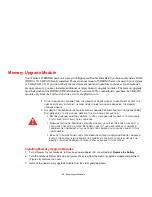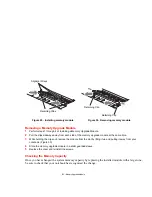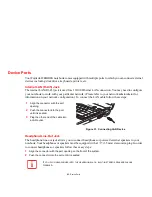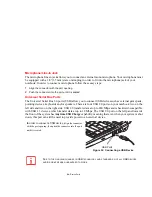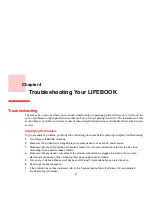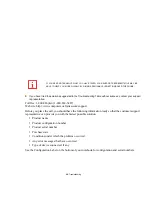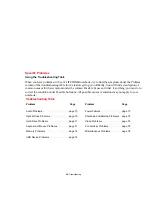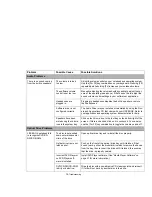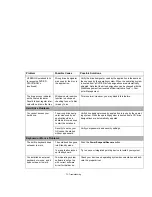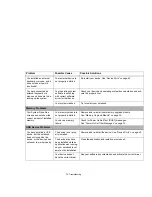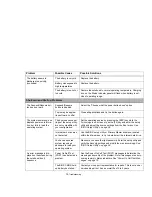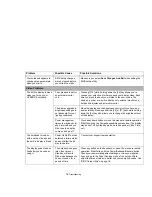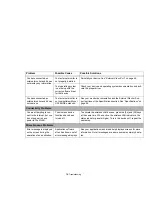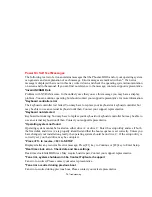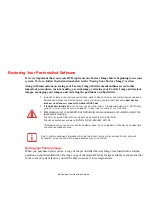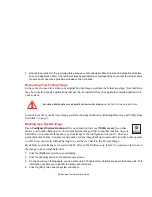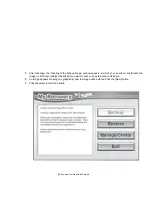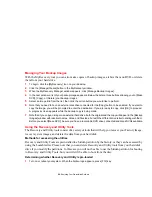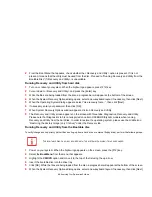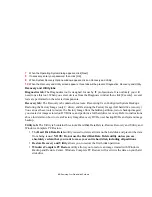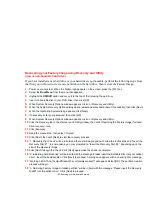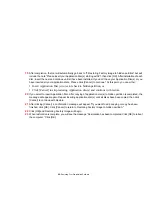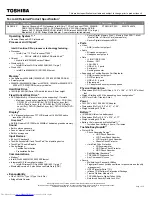
73 - Troubleshooting
Power Failures
You turn on your LIFE-
BOOK notebook and noth-
ing seems to happen.
The power adapter (AC
or auto/airline) is faulty.
Try a different Power adapter.
The battery is installed
but is faulty.
Use the Status Indicator panel to verify the presence and condi-
tion of the battery. See “Status Indicator Panel” on page 19. If a
battery is indicating a short, remove that battery and operate from
another power source or replace that battery.
The installed battery is
completely discharged
or there is no power
adapter installed.
Check the Status Indicator Panel to determine the presence and
condition of the battery. See “Status Indicator Panel” on page 19.
Install a charged battery or a Power adapter.
The battery is low.
Check the battery indicator to ensure the presence and condition
of the battery. See “Status Indicator Panel” on page 19. Use an
AC adapter to operate until a battery is charged or install a
charged battery.
The power adapter (AC
or auto/airline) is not
plugged in properly.
Verify that your adapter is connected correctly. See “Power
Sources” on page 33.
The power adapter has
no power from the AC
outlet, airplane seat
jack, or cigarette lighter.
Move the AC cord to a different outlet, check for a line switch or
tripped circuit breaker for the AC outlet. If you are using an
auto/airline adapter in a car make sure the ignition switch is in the
On or Accessories position.
Your LIFEBOOK notebook
turns off all by itself.
The power manage-
ment parameters are
set for auto timeouts
which are too short for
your operating needs.
Press any button on the keyboard, or move the mouse to restore
operation. If that fails, push the Power/Suspend/Resume button.
Check your power management settings, or close your applica-
tions and go to the Power Options Properties located in the Con-
trol Panel to adjust the timeout values to better suit your needs.
You have a battery
failure.
Verify battery condition using the Status Indicator panel. Replace
a shorted battery. See “Status Indicator Panel” on page 19.
Problem
Possible Cause
Possible Solutions

